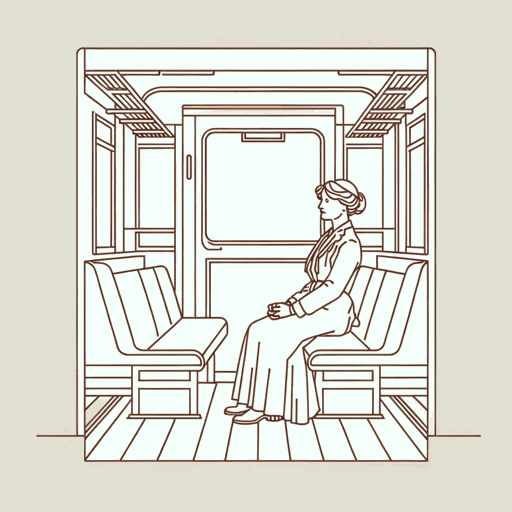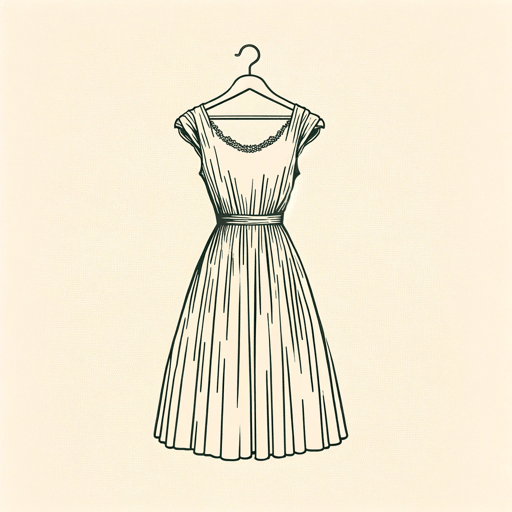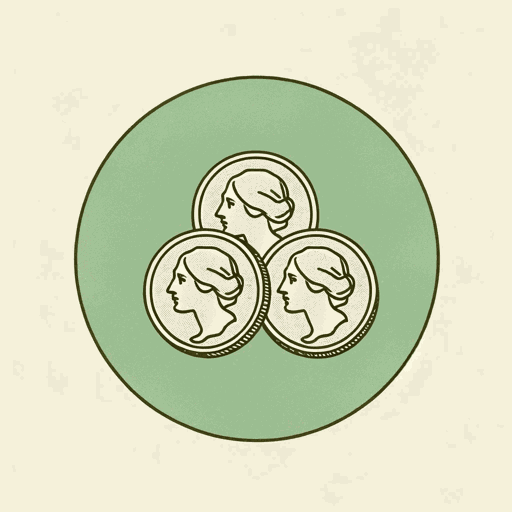50 pages • 1 hour read
Virginia WoolfThe Waves
Fiction | Novel | Adult | Published in 1931A modern alternative to SparkNotes and CliffsNotes, SuperSummary offers high-quality Study Guides with detailed chapter summaries and analysis of major themes, characters, and more.
Summary and Study Guide
Overview
The Waves by Virginia Woolf was published in 1931. Widely considered to be Woolf’s most experimental work, The Waves is a proponent of themes and techniques of modernism, including stream-of-consciousness narration and the use of leitmotifs. Set in England in the first part of the 20th century, the novel explores the lives of six characters from childhood into adulthood, exploring their unique experiences and the relationships between them. Employing a rotational structure of the six characters’ narrative voices speaking in soliloquies, The Waves experiments with contemporaneous ideas around human consciousness and the development of identity. Deeply experimental in style, form, and purpose, The Waves challenged established uses of language, cultural norms, and the nature of storytelling itself.
This guide is based on the 2016 Mariner Books edition. Citations refer to page numbers in this edition.
Content Warning: The source material and this guide contain material on depression, death, death by suicide, grieving, and identity crisis, including around gender and sexuality.
Plot Summary
In the first section of the novel, Neville, Louis, Bernard, Susan, Jinny, and Rhoda are six children growing up in England in the early 20th century. Their families belong to the upper class of British society. Through individual first-person stream-of-consciousness narration, the novel introduces experiences that will be formative for each of the characters’ development through the novel. As young children, they play and go to a local prep school (a fee-paying elementary school) together nearby. Louis is anxious that he will not be accepted by others because his father is Australian and speaks with a different accent. Jinny discovers her physicality when she kisses Louis, making Susan jealous and sad. Rhoda has a formative experience in school when she is unable to make any sense or meaning from the mathematical figures they’re learning.
In the second section of the novel, the six main characters go away to boarding school; the girls and boys go to different schools. Neville, Louis, and Bernard each have different formative experiences with language as they listen to a rector’s (teacher’s) lecture. Neville discovers his need to have order in life and language, Bernard discovers the transformative inspirational power of language, and Louis discovers how language connects him to a tradition he still worries he is not a part of. The three boys meet a boy at school named Percival, who is athletic, popular, and attractive. All three boys form a connection with Percival and idolize him. At her school, Susan is homesick for her family life in the country. Jinny continues to discover her beauty and physicality. Rhoda is having a difficult time forming her identity; she watches Susan and Jinny carefully to emulate their behavior but finds that this technique doesn’t help her.
In the third section of the novel, Neville and Bernard go to Oxford University together. Both are aspiring writers and experiment with language, but their approaches are very different. Because Bernard is extroverted, his fiction is inspired by other people. Because Neville seeks order, his poetry is neat and authentic to real experience. Neville becomes infatuated with Percival and pines for his attention. The girls have finished their educations. Susan has returned to her family home in the country while Jinny and Rhoda enter into society life. Rhoda often joins Jinny at parties, but she lacks Jinny’s innate physical confidence; she continues to feel meaning is missing from her life and struggles to construct a sense of identity. Meanwhile, Louis, whose family can’t afford to send him to university, enters the workforce. He is jealous of Neville and Bernard but eager to prove himself worthy of inclusion in upper-class society. In his spare time, he continues to study history and philosophy and writes to nurture his intellectual and creative interests.
In the fourth section of the novel, the six friends are in their twenties. Louis’s career is going well. Jinny continues to party and prioritize bodily pleasure. Bernard and Neville have graduated and are still writing. Susan still lives in the country. Rhoda continues to search futilely for meaning and identity. As adults, the group has grown apart but they meet in London for a dinner party in honor of Percival, whom they all love. Percival is about to start a career in India, then part of the British Empire. The dinner party is awkward before Percival arrives because there are built-up resentments between the old friends but they find love for one another again after he arrives. They remember their childhood together fondly.
In the fifth section of the novel, Percival dies in a horse-riding accident in India and the responses of the six characters are explored. Neville is deeply impacted by Percival’s death. He resents all the people around him who continue living their lives despite Percival’s death. Neville decides to lean into grief and channel his love for Percival into his poetry. Bernard is also saddened by Percival’s death, but also overjoyed by the birth of his own son. He decides to celebrate life by going out to a party with Jinny. Rhoda also mourns Percival’s death but she decides to embrace life even though she sees it as “ugly” and “depressing”—she is determined to find meaning and beauty.
In the sixth section, the characters are shown established in adult life. Susan becomes a wife and mother and finds meaning and happiness in the growth and nurture of her family. Neville takes lovers in search of a love to replace Percival. Although Neville doesn’t truly fall in love again, his lovers also inspire his poetry. Jinny continues to socialize and sleep with men who confirm her revelry in physicality. Louis has become a very successful businessman. He is now not only a part of high society, but an influential magnate. He also continues to write poetry and study history, although he has less time for these passions. Louis and Rhoda have an affair together.
In section seven of the novel, the characters have grown into middle age. Jinny realizes that she is aging and comes to terms with the fact that she will not always be young and beautiful. Rather than give up on her life of physical pleasure, she decides to continue expressing her sexuality and embracing her physical lifestyle for as long as she can. Susan is still happy with her family on her farm, although she does contemplate what other adventures she’s missing out on because of her choices. Bernard goes to Rome in pursuit of his own adventure—he has become concerned that his fiction writing is not truly capturing the human experience. Rhoda travels to Spain, where she stares out onto the ocean and contemplates the lack of meaning in her life.
In section eight of the novel, the six friends reunite for a dinner party. Again, they begin the dinner on awkward terms, resentful of one another’s successes and foibles. Neville thinks he is happy with his lifestyle, but he projects his insecurities onto Susan, believing that she judges his life because hers is so traditional and secure. Neville is now a successful poet, but he suspects that Susan doesn’t read or care about his artistic lifestyle. Susan also believes that Neville judges her. The friends again eventually ease into their relationships. They recall scenes from their childhood and rediscover their love for one another.
In the ninth section, the narrative is told from Bernard’s point-of-view. He is now an old man and feeling an existential crisis of identity as he doesn’t know what his last chapter may hold for him. Bernard is grateful for the people he has known, especially the five friends whom he recognizes have had an important and formative influence on his sense of self. He muses on the lives and impacts of his friends, including Rhoda who, he reveals, has died by suicide. Now that Bernard is older and wiser, he realizes that his identity is flimsy and believes that he is a failed fiction writer because he has only experienced the world and other people through a superficial lens. Bernard feels that he needs a new language with which to navigate this next chapter of his life. Bernard wants to discover a language that is more authentic and meaningful.
Related Titles
By Virginia Woolf

A Haunted House and Other Short Stories
Virginia Woolf

A Room of One's Own
Virginia Woolf

Between The Acts
Virginia Woolf

How Should One Read a Book?
Virginia Woolf

Jacob's Room
Virginia Woolf

Kew Gardens
Virginia Woolf

Modern Fiction
Virginia Woolf

Moments of Being
Virginia Woolf

Mr. Bennett and Mrs. Brown
Virginia Woolf

Mrs. Dalloway
Virginia Woolf

Orlando
Virginia Woolf

The Death of the Moth
Virginia Woolf

The Duchess and the Jeweller
Virginia Woolf

The Lady in the Looking Glass
Virginia Woolf

The Mark on the Wall
Virginia Woolf

The New Dress
Virginia Woolf

The Voyage Out
Virginia Woolf

Three Guineas
Virginia Woolf

To the Lighthouse
Virginia Woolf

